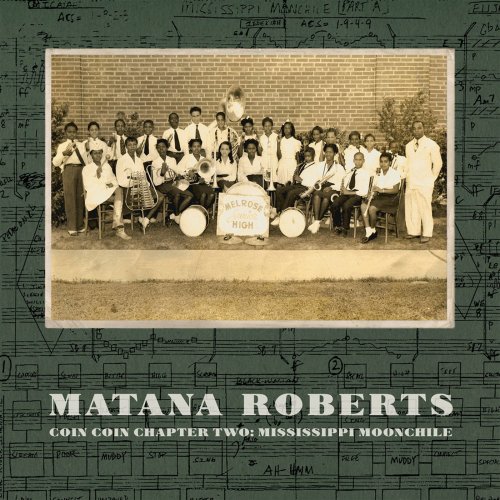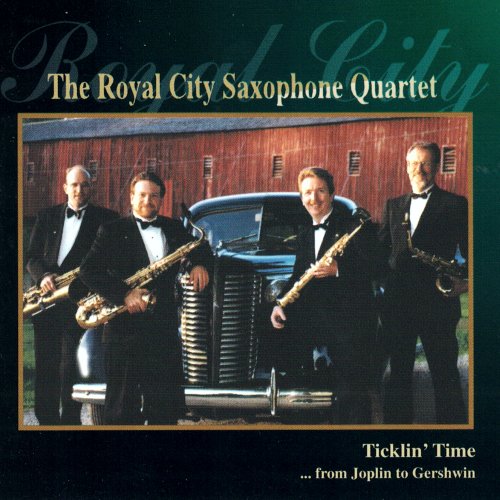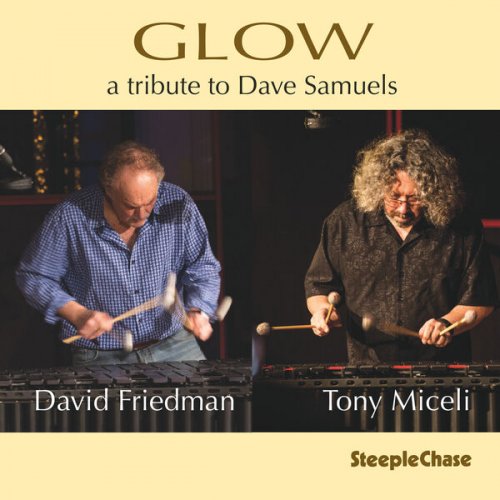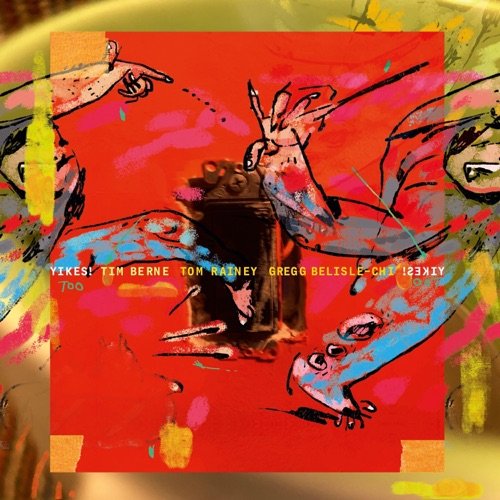Matana Roberts - Coin Coin Chapter Two: Mississippi Moonchile (2013)

Artist: Matana Roberts
Title: Coin Coin Chapter Two: Mississippi Moonchile
Year Of Release: 2013
Label: Constellation – CST098-2
Genre: Jazz, Avant-Garde Jazz, Free Jazz
Quality: 320 / FLAC (tracks+.cue,log)
Total Time: 48:32
Total Size: 114 / 285 Mb
WebSite: Album Preview
Tracklist: Title: Coin Coin Chapter Two: Mississippi Moonchile
Year Of Release: 2013
Label: Constellation – CST098-2
Genre: Jazz, Avant-Garde Jazz, Free Jazz
Quality: 320 / FLAC (tracks+.cue,log)
Total Time: 48:32
Total Size: 114 / 285 Mb
WebSite: Album Preview
01. Invocation (04:16)
02. Humility Draws Down Blue (01:35)
03. All Nations (00:07)
04. Twelve Sighed (02:15)
05. Spares of the World (02:28)
06. Secret Covens (01:44)
07. River Ruby Dues (04:20)
08. Confessor Haste (01:25)
09. Amma Jerusalem School (04:10)
10. For This Is (01:03)
11. Responsory (03:49)
12. The Labor of Their Lips (01:49)
13. Was The Sacred Day (04:25)
14. Lesson (03:30)
15. Woman Red Racked (04:27)
16. Thanks Be You (04:24)
17. Humility Draws Down New (00:47)
18. Benediction (01:58)
Mississippi Moonchile is the second chapter in saxophonist and composer Matana Roberts' projected 12-part work, Coin Coin, which examines race, class, gender and personal experience through the prism of American history. The first chapter, Gens de Couleur Libre, was a large-scale offering, combining out jazz with narrated and sung sections that commenced at the dawn of slavery on North America's shores through the Civil War. It was at once moving, arresting, provocative, and militant, combining histories and mythologies personal, actual and spiritual. By contrast, Mississippi Moonchile was composed with her New York sextet in mind. The ensemble -- Roberts (saxophone), Shoko Nagai (piano), Jason Palmer (trumpet), Thomson Kneeland (double bass), Tomas Fujiwara (drums), and Jeremiah Abiah (an operatic tenor) -- delivers a wildly creative, contrasting, and wide-ranging musical theater performance that embodies three folk songs and 15 original compositions, narration, chorus and solo singing, divided into 18 sections yet played as a continuous whole. The music often reflects the origins of blues and jazz from the Delta and New Orleans, but is woven seamlessly with modern sounds (the meld of gospel, blues, and modal music in "Humility Draws Down Blue" is the epitome of "art music" rooted in American folk traditions and Latin sounds), scat singing, post-bop, and Abiah's gorgeous voice anchoring nearly every cut. Roberts' horn more readily reflects her speaking and singing voices here; it is much warmer and calmer. It reflects blues because it comes straight out of them. Palmer's trumpet is informed by bop and hard bop; it closely follows her lines and underscores them. Nagai's piano builds bridges between various musical traditions and players. Check the meld of briefly articulated free playing, blues, and swing in "Twelve Sighed," which moves briefly toward modal jazz. The use of "Frère Jacques" in "River Ruby Dues" comes out of "My Lord What a Morning," with Abiah offering Roberts' own melody wordlessly as she blows a quote from Coltrane's "Meditations." She showcases the legacy of her studies with the AACM at the beginning of "Responsory," as Abiah delivers her words. Roberts and Palmer trade lines on the outer fringes of the melody as the rhythm section walks a tightrope between; a minute and a half in, it erupts into a gorgeous, slow, King Oliver-inspired blues. The music allows Abiah's mellifluous voice and Roberts' singing and speaking, a warm, inviting space. Her flow of personal narration in "Was the Sacred Day" offers Christian prayers, entries from her grandmother's (the muse of the title) diaries, and sung fragments of "Motherless Child"; the effect is riveting. Even in its relative gentleness, Mississippi Moonchile asks more provocative questions than its predecessor--offering a view of family history and the struggles in juxtaposing thwe African American Experience with "freedom" inside the American Dream. Both albums are parts of a coded memorial quilt, that critically examines the racist design of "official" history, even as it reveals attempts to sublimate it in the veneer of the present era.




![Stefano Battaglia, Stefano Battaglia Standards Quartet - One Mile Away (2026) [Hi-Res] Stefano Battaglia, Stefano Battaglia Standards Quartet - One Mile Away (2026) [Hi-Res]](https://www.dibpic.com/uploads/posts/2026-03/1772346486_cover.jpg)



![Charlie Jung - Kailash Band (2026) [Hi-Res] Charlie Jung - Kailash Band (2026) [Hi-Res]](https://www.dibpic.com/uploads/posts/2026-03/1772463390_cover.jpg)